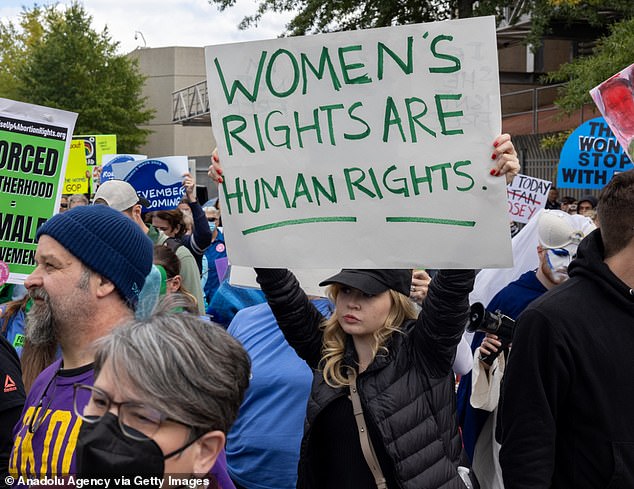Feminists are more likely to engage in casual, no-strings-attached relationships than non-feminists, new research shows.
The academics questioned hundreds of young adults from around the world about their personalities, their views on gender equality and their sexual behaviours.
Women who shared feminist beliefs or identified as feminists were more likely to endorse hookup culture, which encourages one-night stands and casual sex.
Feminists, who advocate for gender equality and liberation from sexual repression, are more likely to support casual encounters.
Researchers from Harvard University, the University of Pittsburgh and the University of North Carolina at Chapel Hill surveyed 318 men and women.
They were feminists and non-feminists and came from the United States, the United Kingdom, Canada, Australia and New Zealand.
Researchers asked them a series of questions to assess their sexual habits and personalities using something called the Feminist Beliefs and Behavior Scale and the Hookup Culture Adoption Index (EHCI).
Some of the questions included: “What is your gender?”, “What term(s) describe your sexual orientation?” and “Are you currently in a committed relationship?”
They were also tested on their beliefs in feminist ideals by asking them whether they agreed or disagreed with the statements: “Girls and women have not been treated as well as boys and men in our society,” “Women and men should receive equal pay for equal work,” and “Women’s unpaid work should be more socially valued.”
Finally, they asked people what they thought about casual relationships by selecting two items from four original subitems.
These items were chosen to represent four key aspects of hookup culture: whether they thought hooking up was fun, harmless and best without emotional commitment, a way to assert control over one’s sexuality and/or a reflection of sexual freedom.
Far more women than men identified as feminists (75 percent versus 35 percent). Feminist women were also significantly more likely to support it than non-feminist women.
The authors reported: ‘Among women, endorsing feminist identity or beliefs (or both) was associated with relatively greater endorsement of hookup culture, relative to women who denied both feminist identity and beliefs.

Hookup culture, defined by casual, unemotional sexual encounters, has had a major impact on the sexual behaviors of young adults.
They added that among those with feminist beliefs, men were more supportive of hookup culture than women.
That pattern held true for those with non-feminist beliefs, suggesting that men’s tendency to endorse hookup culture more than women is consistent across different belief systems.
They wrote: ‘In line with our predictions… among women, the only group that reported significantly lower endorsement of casual sex were those who identified as non-feminists and also held non-feminist beliefs.’
The fact that men were more likely to endorse hookup culture also came as no surprise to the researchers: “Because feminism directly addresses women’s sexual liberation, it may be less relevant in shaping men’s perspectives on hookup culture.”
Women are often judged more harshly than men for having casual sex.
Meanwhile, the term “feminist,” which has taken on an increasingly political charge amid raging culture wars, has been compared to “man-hating” and misinterpreted as a way to elevate women above men beyond simply seeking equality.
The researchers said: ‘The general stigma associated with the feminist label (e.g., hating men) may explain people’s unwillingness to self-identify as feminists.
Furthermore, feminism has historically been at odds with traditional conceptions of masculinity, and therefore men who identify as feminists face particular social stigmas. These stigmas include being seen as gay, less masculine, and more feminine.
Their research was published in the journal Sexual Behavior Archives.
Feminists are thought to be more likely to exert greater control over their sexual choices in an attempt to achieve sexual liberation, which a 2022 study found was associated with greater sexual assertiveness and orgasms.


